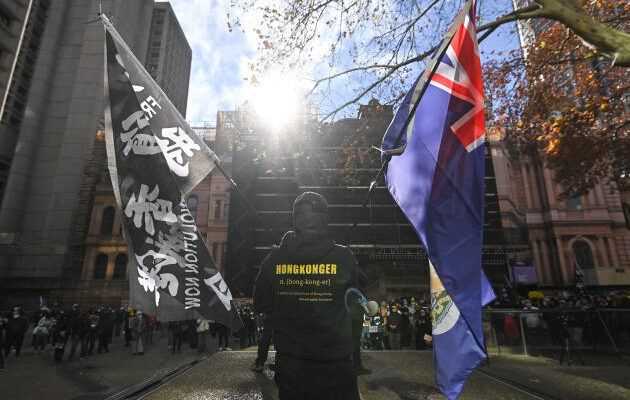FactualTarget of massive economic reprisals since the spring of 2020, the island-continent has stood up to the Chinese giant, its main trading partner, by consolidating its alliance with the United States in the Indo-Pacific while strengthening its means of defense.
In the Art Deco café of a luxury hotel in Canberra, the political journalist of the 9News television channel, Jonathan Kearsley, has an appointment, on Tuesday, November 17, 2020, with a Chinese diplomat for, he hopes, negotiate a meeting with Cheng Jingye, Ambassador of the People’s Republic to Australia. The Sino-Australian relationship deteriorated sharply six months earlier, after Canberra demanded, in April, the opening of an investigation into the origin of the Covid-19 pandemic. The journalist has already requested an interview for several months to discuss these tensions. In the cafe, the diplomat took out a piece of paper from her purse, which she slipped to him, saying: “I’m giving it to you because I want everything to be clear. Here is what worries China. “
Sure the document does not appear on the letterhead or signature, but a list of fourteen points that Australians will soon call the Chinese “fourteen grievances”. We find there, pell-mell, “The call for an independent international investigation into the Covid-19 having served as a political manipulation echoing the American attack on China”, “the incessant and gratuitous interference in the Chinese affairs of Xinjiang, Hong Kong and Taiwan “ or “The unfriendly and hostile media coverage [australiens] “. If Canberra wants to improve its relationship with Beijing, explains the young woman, it must start by responding to this list. “China is angry. If you make China the enemy, China will be the enemy! “, she lets go again, before turning on her heels.
“I was surprised by the violence of the message, but also by this extremely bizarre way of delivering it”, Jonathan Kearsley remembers today, who also received two travel guides to the Middle Empire as a gift. By discovering this incredible inventory which soon spreads to the “front page” of the media, Australians are stunned to find themselves the object of such blackmail. “Our values are not negotiable. Our democracy is not negotiable. Our sovereignty is not negotiable! “, Conservative Prime Minister Scott Morrison immediately retorts.
The head of government advocates “Strategic patience” : do not provoke, do not outbid, but remain consistent and never back down. The island-continent ensures that it does not want to stir up tensions with the Asian giant, which since 2006 has become its first trading partner ahead of Japan. But it also intends to protect its sovereignty, its interests and the values it shares with Washington, its strategic ally and partner within Australia, New Zealand, United States Security Treaty, Anzus. This security treaty signed by Australia, New Zealand and the United States after the Second World War, in 1951, was originally intended to protect the latter against a possible resurgence of Japanese militarism. Following New Zealand’s withdrawal in 1985, Anzus became de facto a bilateral pact. However, like to remind Australian officials: “Between the United States and China, our country does not have to choose. “
You have 84.78% of this article to read. The rest is for subscribers only.
